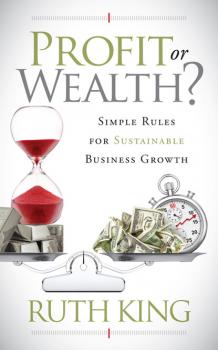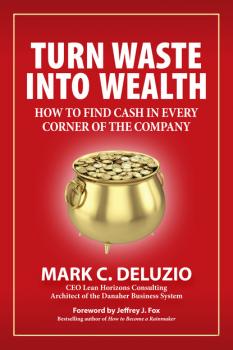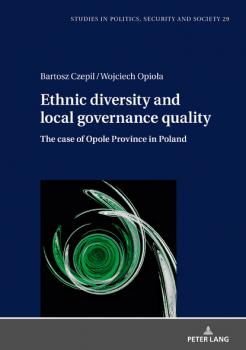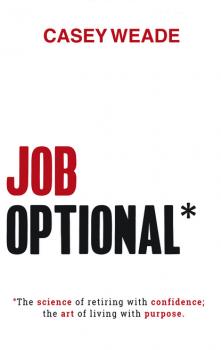Ценные бумаги, инвестиции
Различные книги в жанре Ценные бумаги, инвестицииPrinciples of Economics
This book is designed to provide a comprehensive introduction to the economic theories, both the established and the less orthodox, behind some of the most vital areas of economics today. The topics covered include welfare economics, international trade, income and employment, trade cycles and economic growth, public finance and economic systems. Each topic is clearly elucidated with different theories and models lucidly explained with the help of diagrams and graphs. For each chapter there are exercises and multiple choice questions. The author, a professor of economics, is the author of many books and numerous research articles on economic theory.
Making Money
“Explosive … an absolutely indispensable guide through the labyrinth of economics.” – Slavoj Žižek What is money? Where does it come from? Who makes it? And how can we understand the current state of our economy as a crisis of money itself? In Making Money, Ole Bjerg turns these questions into a matter of philosophical rather than economic analysis. Applying the thinking of Slavoj Žižek and other scholars to mainstream economic literature, Bjerg provides a radical new way of looking at the mysterious stuff we use to buy things. It is a theory unfolded in reflections on the nature of monetary phenomena such as financial markets, banks, debt, credit, derivatives, gold, risk, value, price, interests, and arbitrage. The analysis of money is put into an historical context, suggesting that the current financial turbulence and debt crisis are evidence that we live in the age of post-credit capitalism. By bridging the fields of economics and contemporary philosophy, Bjerg's work engages in a compelling form of intellectual arbitrage.
Profit or Wealth?
Profit or Wealth? gives business owners the easiest ways to avoid business failure. By following the 10 rules of profit and 10 rules of wealth displayed within Profit or Wealth? business owners can live the life of their dreams. Many business owners just worry about profits and ignore business wealth building, but a business needs both. Without building wealth, the business can still go bankrupt. Unlike books which solely focus on building personal wealth, Profit or Wealth? gives business owners clear and simple rules to build business wealth…which can translate to personal wealth. Profit or Wealth? takes a unique perspective on what really matters in financial statements. Percentages don’t matter. Dollars do. For example, business owners discover why looking at net profit percentages or gross margins can get them in trouble.
Turn Waste into Wealth
Cash is lying around everywhere in companies. It's in warehouses and on shelves, hiding in plain sight as inventory. It litters administrative offices, disguised as incorrect invoices, late billings, sloppy requests from salespeople. It sits in company lobbies waiting for sales calls to start. All that cash is retrievable – available for re-investment. Turn Waste into Wealth will help you get that cash by turning your organization into a Lean company.Mark DeLuzio, principle architect of the vaunted Danaher Business System that has led companies to world-class performance, presents hard-hitting advice and numerous case histories that will help you make your company Lean. You'll learn: Why Lean is the modern way to run any organization; What you must do to insure a successful Lean transformation; Lean accounting practices that promote Lean behaviors; How to identify and deal with Lean naysayers; Why LEAN does not mean «Less Employees Are Needed»; What and why to benchmark; The Lean formula for setting prices; How to deploy strategy in a Lean environment.Great companies continuously improve everything they do to increase shareholder returns. If you're new to lean or already using Lean practices, Turn Waste into Wealth will help you make your company great.
Ethnic diversity and local governance quality
The book is devoted to relations between the ethnic diversity and the quality of governance at the local level. Opolskie province in Poland is a case for explaining this interdependence. That is because of its history of multiculturalism and the present state of its ethnic diversity. The important feature of this region is, that nearly half of the communes is ethnically homogenous when the rest is ethnically diversified with a strong position of German and Silesian minorities. The preliminary assumption was, that the quality of governance would be higher in communes characterized by ethnic diversity. On the basis of the nested analysis method, authors conducted quantitative and qualitative analysis.
Job Optional*
Job Optional is a thoughtful and down to earth guide to retirement planning that offers unbiased, commonsense advice based upon the author’s experience as a retirement planning professional. It offers both a primer to the financial world as well as a step-by-step guide to planning your own retirement. It is written in terms that a newcomer to investing can understand while providing all the pertinent information necessary to make informed financial decisions. It acts as a primer that takes a complicated topic and makes it accessible, while not diluting the information.
Interestingly, for a book about money, the first recommended step in financial planning has nothing to do with the stock market or annuities, but the need for an individual to have a life purpose. One’s goal should be to identify this purpose and to create a plan set out to organize your assets in such a way to most efficiently accomplish that end. Once this has been decided, the next step is into the world of finance.
This begins with an analysis of today’s investment risks. Once the risks are understood, specific strategies to overcome them are determined. A plan is created that ends with a final, written product. To do this, requires a solid understanding of the financial world and reading Job Optional makes this possible.
Five chapters deal specifically with financial concepts, strategies, and terms, ordered as an organized outline to the logical steps in retirement planning. These are: purpose-based asset allocation, liquidity planning, income planning, growth planning, and estate planning.
The book is a wealth of information as it describes the many elements and strategies of financial planning. Look here to learn about such things as the 4-percent withdrawal rule; strategies for interest-only, real-income, and guaranteed lifetime income; advice on watching your expenses; information on maximizing your legacy that includes basic IRA strategies; a list of basic documents such as powers of attorney and living wills; what to consider when choosing – or breaking up with – a financial advisor. The information is in-depth, detailed, and complete.
In places, and this is a strong point as this makes abstract financial concepts real and understandable and adds interest and color. The book takes a friendly, conversational, tone as the investment information is intertwined with stories taken from the author’s life, his parents’ lives, and his clients. Retirement brings with it its own set of life changes, challenges, and situations. The sharing of these stories makes financial planning real. It also underscores the book’s message that success isn’t money, but purposeful living, and that good financial planning will allow you to achieve this goal and be a success on your own terms.
Finance Equations And Answers (Speedy Study Guides)
If you're struggling with finance in college, then this is the book you ought to have! This quick study guide is composed of ideas interlaced with formula guides and arranged from the basic to the advanced. Using the ideas in this guide, solving financial equations shouldn't be a task almost impossible to accomplish. Get your own copy today!
Finance (Speedy Study Guides)
Before you can analyze financial problems, you first need to be well acquainted with its many forms and theories. This quick study guide takes you to understand corporate and public finance, financial services, economics, mathematics and capital. An understanding of these concepts will lead to easier analysis of complex financial data and problems later on. Be sure to keep a copy of this guide starting today.
Business Finance (Speedy Study Guides)
A business finance study guide will help students study for tests by providing concrete examples of financial decision making. While it will present the actual methodology used within the financial calculations, the biggest value can be found from how it presents business logic. One can see how to best use the results of those calculations in real world examples. This usually matches what the test writers expect.
Financial Management Terminology (Speedy Study Guide)
Learning financial management terminology is the only way anyone in the business industry is going to take you seriously. The real world and the business world are seperated by one thing, knowledge. In order to succeed in business management, learning all the correct references even before you start your course by studying the study guide will ensure you excel in your studies throughout the course, and apply a lot more knowledge towards your course than a student would who didn't bother going through the study guide. Learning the terminology will save the teacher the trouble of teaching you the language, and then begin to teach you where to use such lingo.









